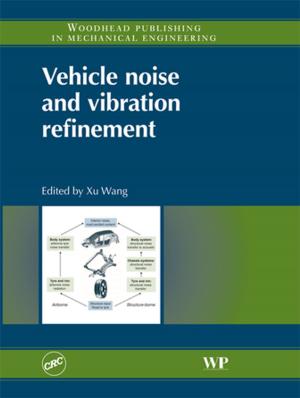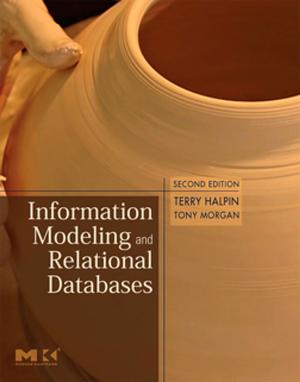Wheel-Rail Interface Handbook
Nonfiction, Science & Nature, Technology, Machinery, Engineering, Mechanical| Author: | ISBN: | 9781845696788 | |
| Publisher: | Elsevier Science | Publication: | September 25, 2009 |
| Imprint: | Woodhead Publishing | Language: | English |
| Author: | |
| ISBN: | 9781845696788 |
| Publisher: | Elsevier Science |
| Publication: | September 25, 2009 |
| Imprint: | Woodhead Publishing |
| Language: | English |
Many of the engineering problems of particular importance to railways arise at interfaces and the safety-critical role of the wheel/rail interface is widely acknowledged. Better understanding of wheel/rail interfaces is therefore critical to improving the capacity, reliability and safety of the railway system.
Wheel-rail interface handbook is a one-stop reference for railway engineering practitioners and academic researchers. Part one provides the fundamentals of contact mechanics, wear, fatigue and lubrication as well as state-of-the-art research and emerging technologies related to the wheel/rail interface and its management. Part two offers an overview of industrial practice from several different regions of the world, thereby providing an invaluable international perspective with practitioners’ experience of managing the wheel/rail interface in a variety of environments and circumstances.
This comprehensive volume will enable practising railway engineers, in whatever discipline of railway engineering – infrastructure, vehicle design and safety, and so on – to enhance their understanding of wheel/rail issues, which have a major influence on the running of a reliable, efficient and safe railway.
- One-stop reference on the important topic of wheel rail-interfaces
- Presents the fundamentals of contact mechanics, wear, fatigue and lubrication
- Examines state-of-the-art research and emerging technologies related to wheel-rail interface and its management
Many of the engineering problems of particular importance to railways arise at interfaces and the safety-critical role of the wheel/rail interface is widely acknowledged. Better understanding of wheel/rail interfaces is therefore critical to improving the capacity, reliability and safety of the railway system.
Wheel-rail interface handbook is a one-stop reference for railway engineering practitioners and academic researchers. Part one provides the fundamentals of contact mechanics, wear, fatigue and lubrication as well as state-of-the-art research and emerging technologies related to the wheel/rail interface and its management. Part two offers an overview of industrial practice from several different regions of the world, thereby providing an invaluable international perspective with practitioners’ experience of managing the wheel/rail interface in a variety of environments and circumstances.
This comprehensive volume will enable practising railway engineers, in whatever discipline of railway engineering – infrastructure, vehicle design and safety, and so on – to enhance their understanding of wheel/rail issues, which have a major influence on the running of a reliable, efficient and safe railway.
- One-stop reference on the important topic of wheel rail-interfaces
- Presents the fundamentals of contact mechanics, wear, fatigue and lubrication
- Examines state-of-the-art research and emerging technologies related to wheel-rail interface and its management















